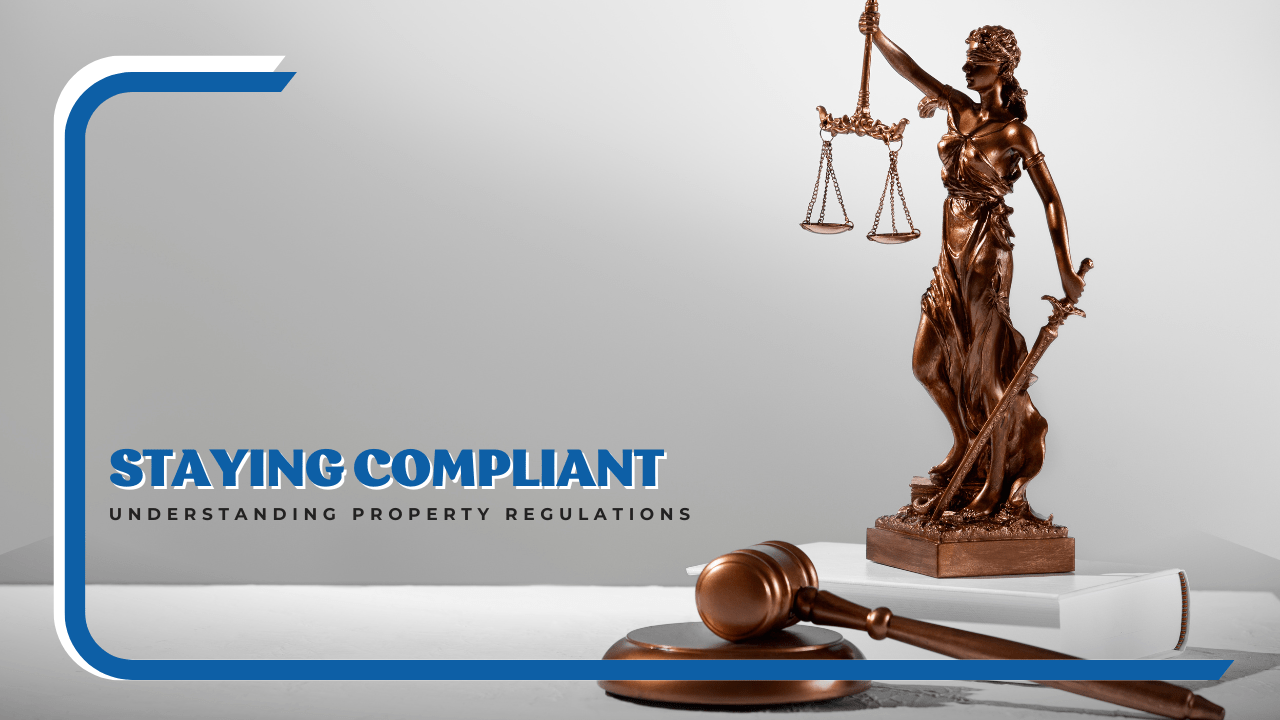Understanding San Diego’s property regulations is absolutely required when you’re renting out a property. It’s remarkably easy to make a legal mistake, and you want to avoid any missteps or pitfalls whenever you can. These mistakes tend to be expensive and time-consuming. Rectifying situations and coming into compliance isn’t always easy.
It’s difficult to stay up to date on the constantly changing requirements and regulations. We get it. This is an excellent reason to partner with a San Diego property management company. It’s part of our job to keep you and your investment property compliant.
San Diego has its own property regulations, but your rental property here also has to follow state laws. As you probably know, California has some of the strictest resident protections in the country. You need to understand how to raise the rent, evict a resident, and ensure your property is safe and habitable. There are even new laws around organic waste and how it’s handled in a multi-family property.
We’re here to defend you against potential liabilities and ensure that you don’t miss an important law or regulation at all. Let’s examine some of San Diego’s most important regulations and California’s most important laws.
The Tenant Protection Ordinance
The Tenant Protection Ordinance went into effect throughout San Diego on June 24, 2023.
This law was proposed, approved, and put into place because evictions in San Diego reached a five-year high. This is mostly due to the pandemic and the catch-up that occurred post-eviction moratorium, but the city council and the mayor also wanted to embrace the just cause eviction laws that the statewide Tenant Protection Act put into place in 2020.
This new resident protection law brings San Diego up to the standards set by AB 1482. In several areas, the law manages to go even further than the statewide standards. For example:
Resident protections apply on the first day of a lease agreement, with a narrow exemption for short term leases.
Financial assistance must be provided when you terminate a resident’s lease through no fault of their own.
Accountability measures are in place to enforce just cause eviction laws.
Recent Laws in San Diego and California You Need to Know
By now, you’re aware of the rent control laws and just cause eviction laws in place for both San Diego the city, San Diego the county, and the entire state of California. Make sure your lease agreement reflects whether your property is included in or exempt from those laws. This is an important requirement that many investors forget about. Your lease must clearly state this information, otherwise your exempt property could suddenly be beholden to rent control and just cause eviction requirements.
Here are some recent laws that you might have missed, but have gone into effect over the last year or two:
Organic Waste Regulations
If you’re renting out units in a multi-family property, you have new regulations around organic waste. If you invest in a building with five or more units, you need to provide your residents with a way to dispose of organic waste separately and in accordance with state law. This includes subscribing to the city’s curbside collection service for organics or hauling the waste to a composting facility yourself.
Your building needs a container that’s correctly labeled. You must provide the composting information on organic waste collection to your residents within 14 days of them moving into your rental unit.
Habitability Requirements
California’s Implied Warranty of Habitability has always existed, but enforcement has been ramped up with a recently passed law that requires a city or county to investigate any habitability complaints from residents.
Equal Access to Amenities
Former San Diego Assemblywoman Lorena Gonzalez and Assemblyman Chris Ward wrote AB 491, which requires that mixed-income multi-family buildings provide all occupants equal access to amenities and common areas and entrances. There may be no difference between what residents in market-rate housing units and residents in affordable housing units can access.
San Diego Security Deposits
Security deposits are easy to fumble, and you need to remember a few key things when collecting, holding, and returning your resident’s deposit.
There are limits to what you can collect. Up to the equivalent of two months’ rent is acceptable for an unfurnished rental home (three months’ rent for a furnished home).
You have to return the deposit within 21 days of a resident moving out.
If you’re withholding any money from the deposit, you need to provide an itemized list explaining how much you kept and why.
Remember, you need to offer your residents a pre-move-out inspection so they know what to expect in terms of security deposit deductions. It’s also important not to deduct for wear and tear. You can deduct for resident damage, cleaning, and overdue rents, but not normal wear and tear issues.
Fair Housing Laws in California
Fair housing is another easy mistake that’s often waiting to happen. You don’t want to find yourself running afoul of fair housing regulations, because that can lead to a fine that’s up to or even exceeding $16,000. California state laws are actually stricter than the federal fair housing laws.
In California, there exists a longer list of protected classes than the seven identified by federal laws.
California’s fair housing laws prohibit discrimination when it comes to leasing, screening, and managing your rental property based on:
Race
Skin color
Religion or creed
National origin or ancestry.
Sex
Physical or mental disability
Familial status
Sexual orientation
Age
Gender identification
Gender expression
Veteran or military status
Citizenship
Primary language
Marital status
Source of income
Genetic information
This is a list that is always evolving. It is essential that when you rent out a property, you keep up on all fair housing laws at a state, local, and federal level. Things have changed with service animals and emotional support animals, for example. Make sure you’re up to date.
 Questions about a specific San Diego rental regulation that has you confused? We’ll help set things straight. Contact us at PURE Property Management, and we’ll help you enjoy a stress-free investment experience.
Questions about a specific San Diego rental regulation that has you confused? We’ll help set things straight. Contact us at PURE Property Management, and we’ll help you enjoy a stress-free investment experience.











